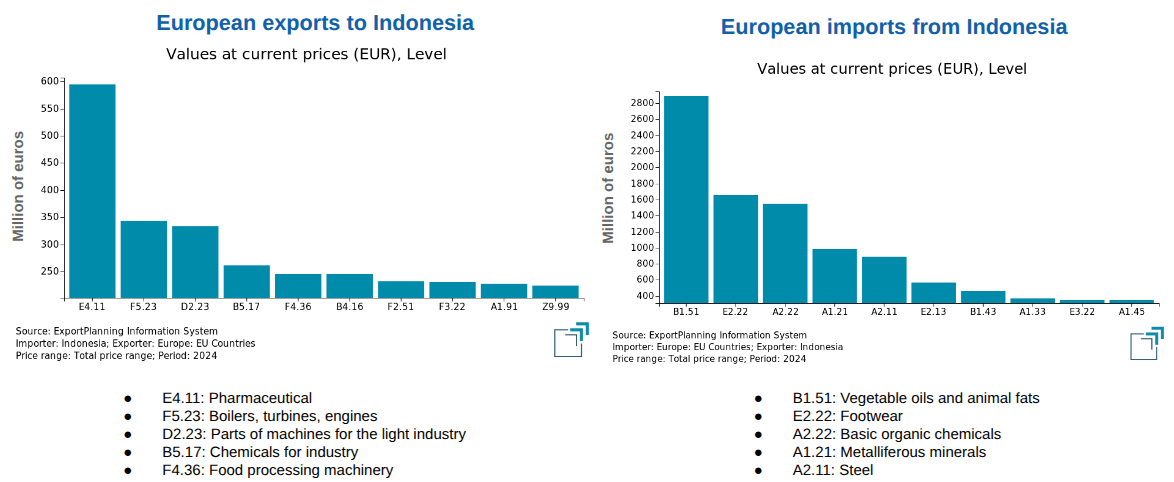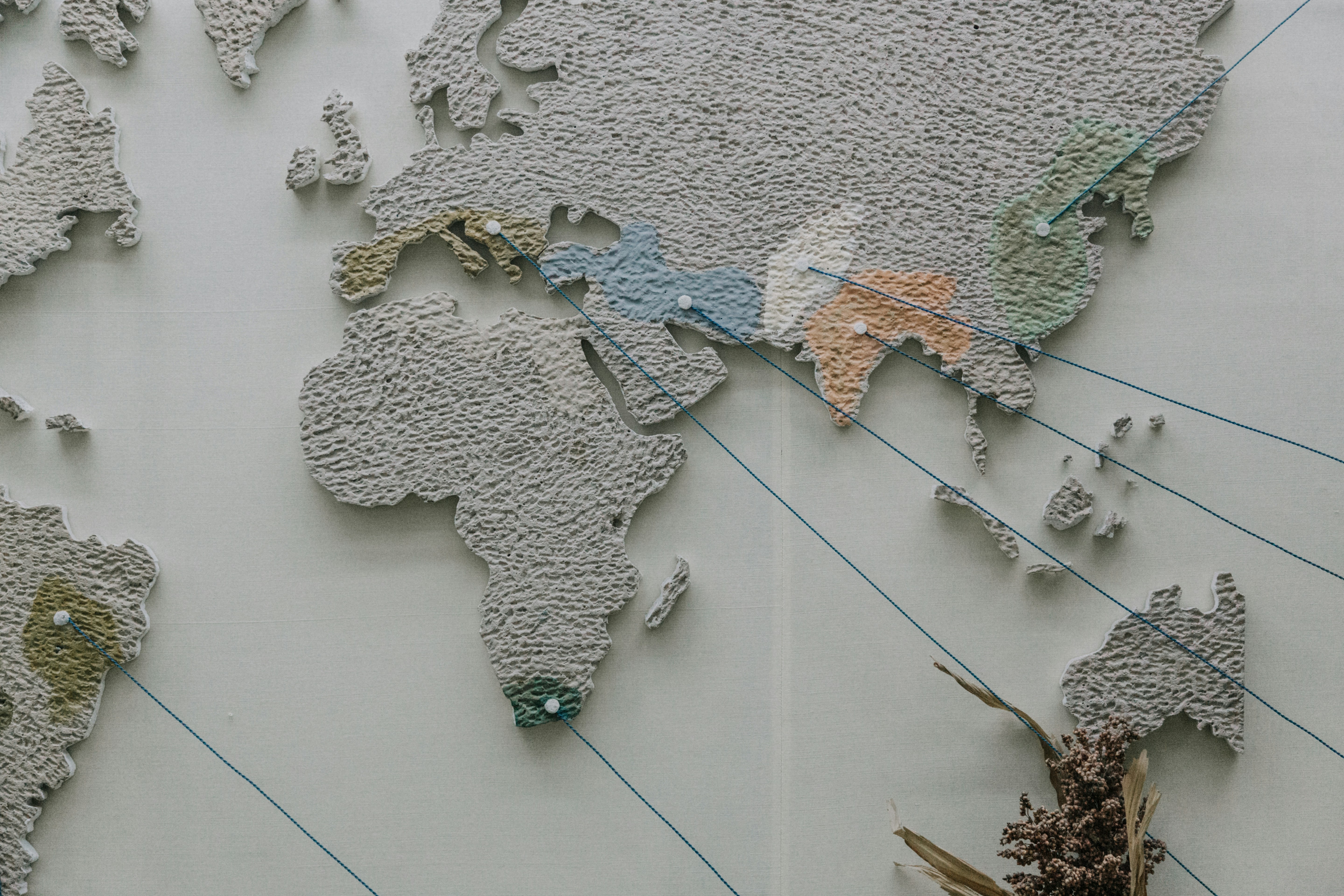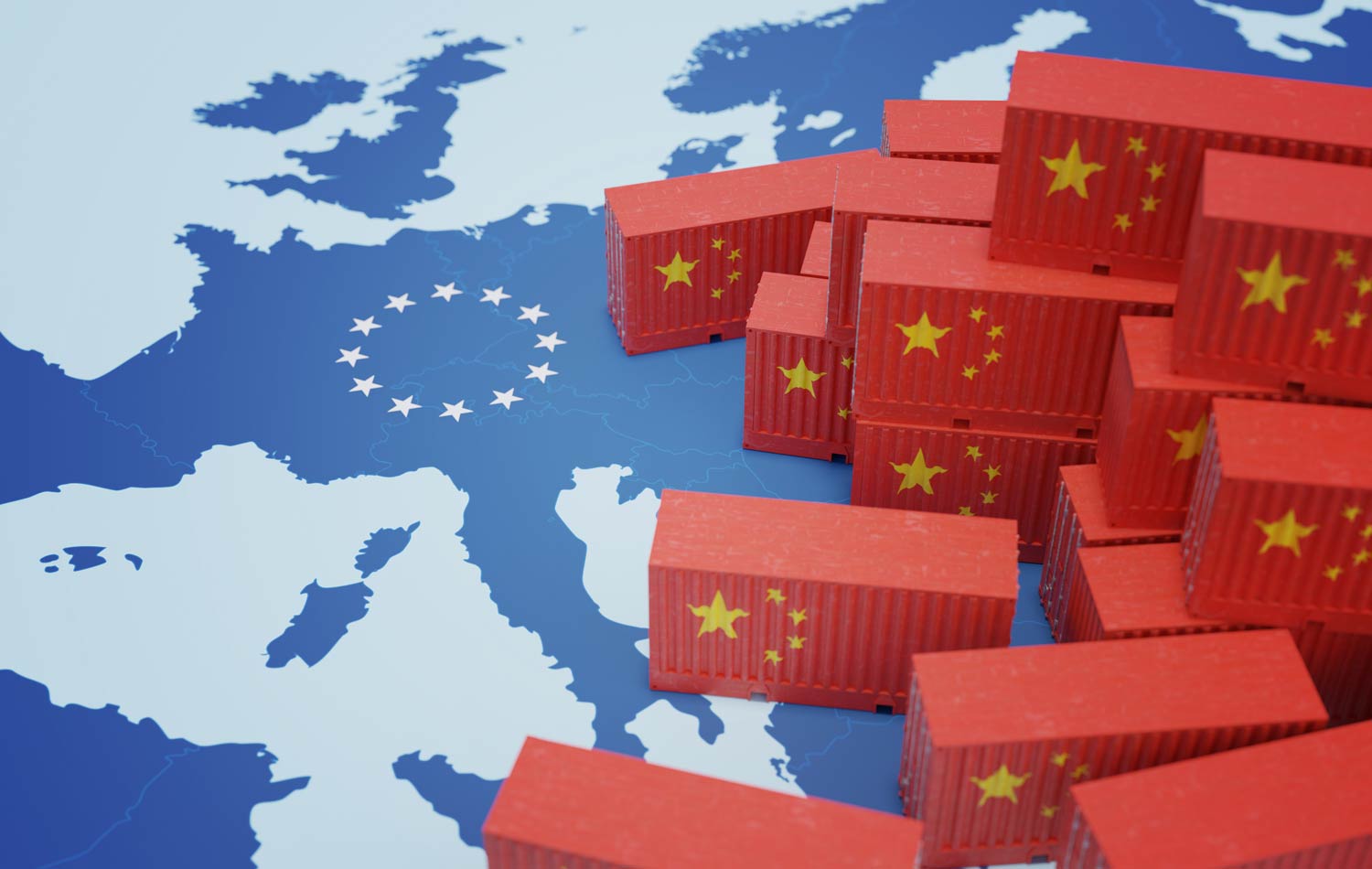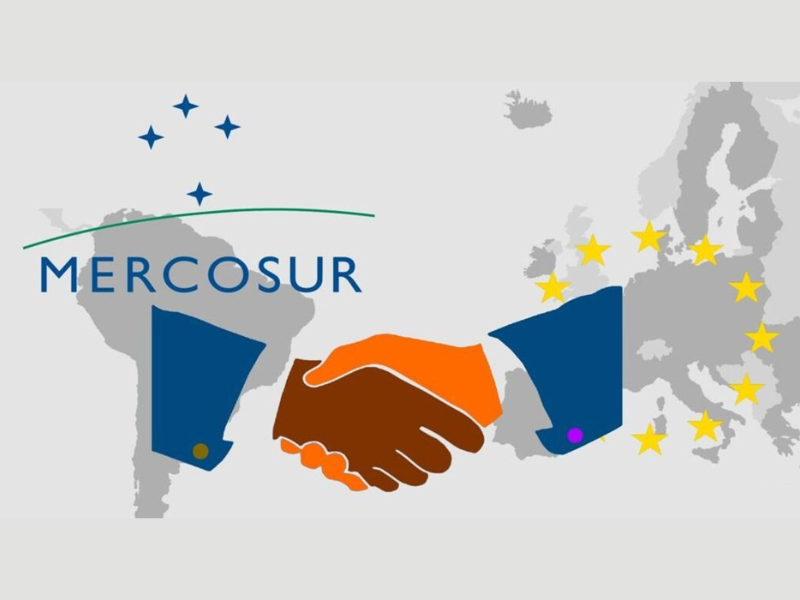The EU-Indonesia free trade agreement: new opportunity for european exports
Tariff reduction for agri-food, auto and critical row materials sectors
Published by Silvia Brianese. .
Importexport Foreign markets Free trade agreementsAfter almost ten years of negotiations, on 23 September the negotiations between the European Union and Indonesia for the definition of a Comprehensive Economic Partnership Agreement(CEPA) officially concluded, following the political agreement reached on 13 July between European Commission President Ursula Von Der Leyen and the Indonesian President Prabowo Subianto.
The acceleration of the negotiations was also driven by trade tensions with the United States, the second-largest trading partner for both the EU and Indonesia. In fact, the "reciprocal" tariffs introduced by the Trump administration with the Executive Order of 31 July impose tariff rates of 15% and 19% respectively on European and Indonesian exports, pushing Bruxelles and Jakarta to seek new trade opportunities capable of reducing procurement costs and expanding access to strategic markets.
The core of the negotiations between the European Union and Indonesia concerns trade liberalization between the two countries, aiming to eliminate tariffs on imports of over 98% of EU merchandise to Indonesia. The removal of tariffs will take place gradually: 80% of the products will be duty-free from the moment the agreement comes into force, while the remaining products will be liberalized within five years.
EU-Indonesia: bilateral trade analysis
Before analysing the contenents of the agreement in more detail, it is useful to look at the current state of trade between European Union and Indonesia.
As shown in the chart below, the EU-Indonesia trade balance appears negative. This means that the European Union imports more from Indonesia than it exports to the Asian country, with a differential of approximately 7 billion euros in 2024.
Fig.1 - UE-Indonesia trade balance

Source: ExportPlanning calculations.
However, the European exports to the Indonesian market have experieced a solid growth trend since the Great Recession. In particular, in sectoral terms, in 2024 European exports to Indonesia mainly involved pharmaceutical products and industrial machinery, including boilers, turbines and engines, food industry machines, and earth-moving equipment. Imports from Indonesia, on the other hand, have been concentrated on vegetable oils and animal fats (in particular palm oil), footwear and outerwear, as well as basic organic chemicals and metalliferous mineral products.
Fig.2 - EU-Indonesia trade balance - Sectoral analysis

Source: ExportPlanning calculations.
The trade agreement thus serves as a strategic tool between the two parties to support European businesses in expanding into the Indonesian market, facilitating access to local consumers through tariff reductions and the simplification of trade procedures.
Advantages for European agri-food firms
The trade agreement provides for the elimination of tariffs on the main European agri-food exports to Indonesia, including:
- Dairy products, with current tariffs up to 10%
- Meat-based products, with current rates ranging from 5% to 20%
- Processed food products, such as chocolate, sweets, baked goods, and preserves, currently subject to tariffs up to 30%
At the same time, the European Union commits to reducing or eliminating tariffs on Indonesian agri-food products, creating reciprocal benefits.
However, in order to ensure the protection of typical products in both countries and support the export of high-quality goods, tariffs will remain in place for 221 European agri-food products and 72 Indonesian products protected by Geographical Indication. Furthermore, the European Union will continue to protect the most sensitive agricultural sectors: there will be no new market openings for rice, sugar, fresh bananas, eggs, and ethanol; while products such as garlic, mushrooms, sweet corn, cassava starch, and high-sugar foods will be subject to limited tariff rates.
Regarding food raw materials, the agreement also includes a duty-free export quota for crude palm oil and palm kernel oil, strategic resources for several European industrial sectors.
Under these terms, the agreement thus opens new opportunities for European agri-food businesses without significantly altering the balance of the European internal market, as the products most imported from Indonesia are complementary goods (such as palm oil) and not in competition with European agricultural production.
Tariff reductions also for industrial products
Finally, regarding industrial products, Indonesia commits to eliminating high tariffs on motor vehicles, machinery, and electrical equipment and chemical-pharmaceutical products.
Critical raw materials: a new sourcing strategy
The agreement is not limited to the agri-food and industrial sectors but also provides tariff incentives for European exports in the critical raw materials sector, essential for the EU’s dual digital and green transition. Indonesia, in fact, represents a strategic supplier to the European Union of nickel and cobalt, raw materials used in the production of batteries, metal alloys, and stainless steel components. The goal of the agreement is to create a strategic partnership to ensure secure, predictable, and sustainable supply chains.
Beyond tariffs: investment opportunities, sustainable development, and digital transition
The EU–Indonesia agreement goes beyond simple trade liberalization, opening new investment opportunities for European businesses, with particular attention to electric vehicles, electronics, and pharmaceutical products.
Finally, on the sustainability front, the agreement includes binding commitments on labor, environment, and climate, aligning with the objectives of the Paris Agreement and promoting cooperation on trade-related environmental issues, including the palm oil sector. Thanks to these measures, the CEPA creates a more predictable and favorable investment framework, supporting the green and digital transition of both economies.
The EU strategy: diversifying trade partners to reduce commercial uncertainty
Following the treaty with Mercosur, the European Union has officially signed the agreement with Indonesia as well, consolidating trade relations with the ASEAN bloc, active since 1977. The agreement confirms Europe’s commitment to pursue a strategy of diversifying its trade partners, in response to uncertainties generated by US trade policy.
The EU–Indonesia agreement represents a milestone in Europe’s partnership strategy, opening new export opportunities and strengthening supply chains, particularly for energy and raw materials, which are essential to support the EU’s dual green and digital transition.


